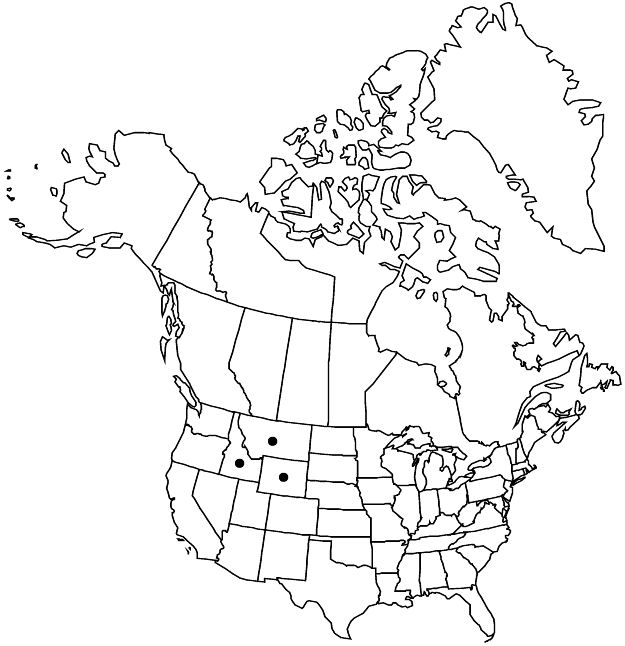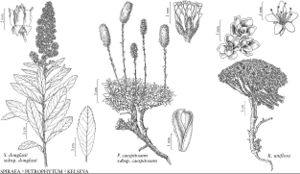Difference between revisions of "Kelseya uniflora"
in N. L. Britton et al., N. Amer. Fl. 22: 254. 1908.
Common names: One-flower kelseya or spiraea alpine laurel
EndemicIllustrated
Basionym: Eriogynia uniflora S. Watson Proc. Amer. Acad. Arts 25: 130. 1890
Treatment appears in FNA Volume 9. Treatment on page 415.
FNA>Volume Importer |
imported>Volume Importer |
||
| (2 intermediate revisions by 2 users not shown) | |||
| Line 1: | Line 1: | ||
{{Treatment/ID | {{Treatment/ID | ||
|accepted_name=Kelseya uniflora | |accepted_name=Kelseya uniflora | ||
| − | |accepted_authority=(S. Watson) Rydberg | + | |accepted_authority=(S. Watson) Rydberg |
|publications={{Treatment/Publication | |publications={{Treatment/Publication | ||
|title=in N. L. Britton et al., N. Amer. Fl. | |title=in N. L. Britton et al., N. Amer. Fl. | ||
| Line 46: | Line 46: | ||
-->{{#Taxon: | -->{{#Taxon: | ||
name=Kelseya uniflora | name=Kelseya uniflora | ||
| − | |authority=(S. Watson) Rydberg | + | |authority=(S. Watson) Rydberg |
|rank=species | |rank=species | ||
|parent rank=genus | |parent rank=genus | ||
| Line 60: | Line 60: | ||
|publication year=1908 | |publication year=1908 | ||
|special status=Endemic;Illustrated | |special status=Endemic;Illustrated | ||
| − | |source xml=https:// | + | |source xml=https://bitbucket.org/aafc-mbb/fna-data-curation/src/2e0870ddd59836b60bcf96646a41e87ea5a5943a/coarse_grained_fna_xml/V9/V9_701.xml |
|subfamily=Rosaceae subfam. Amygdaloideae | |subfamily=Rosaceae subfam. Amygdaloideae | ||
|tribe=Rosaceae tribe Spiraeeae | |tribe=Rosaceae tribe Spiraeeae | ||
Latest revision as of 22:58, 5 November 2020
Shrubs 3–6 dm diam. Leaves light green to grayish green, becoming brownish, marcescent, hardened. Flowers: sepals persistent, inflating radially with fruit maturity. Follicles brown, coriaceous, opening first along adaxial suture, later on abaxial suture. 2n = 18.
Phenology: Flowering Apr–Aug.
Habitat: Cracks of limestone rock outcrops
Elevation: 1800–3500 m
Distribution

Idaho, Mont., Wyo.
Discussion
Kelseya uniflora can form dense carpets or mats that may cover areas of cliff faces. The solitary flower is unique in Spiraeeae. This species is of interest as an unusual rock-garden plant; it is difficult to cultivate.
Selected References
None.
Lower Taxa
None.
